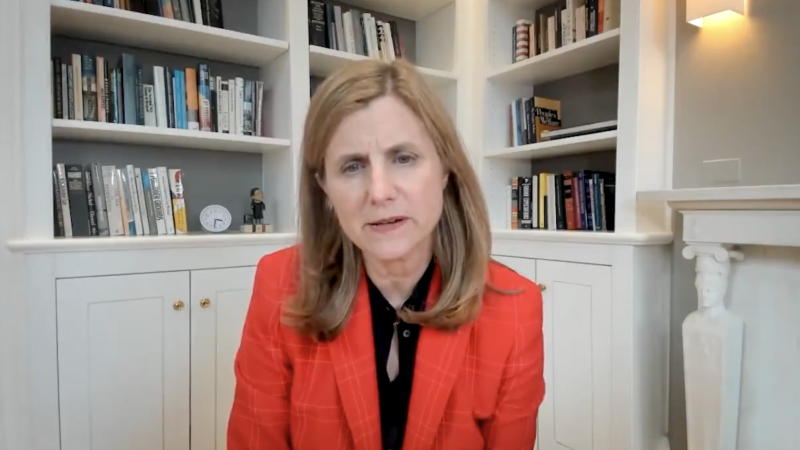
Leaders of elite educational institutions are now desperately trying to contain the fallout from the explosive hearing earlier this week at which the presidents of Harvard University, Massachusetts Institute of Technology, and the University of Pennsylvania failed to reassure Congress that they were sufficiently concerned about antisemitism on campus.
UPenn President Elizabeth Magill released a video yesterday in which she clarified that calling for genocide against Jewish people is "evil, plain and simple" and would in fact violate the university's anti-harassment policies.
A Video Message from President Liz Magill pic.twitter.com/GlPE3QZU4P
— Penn (@Penn) December 6, 2023
This speech did very little to appease Republicans who have demanded that universities take firmer steps to discourage antisemitic rhetoric.
In fact, her immediate flip-flop on the permissiveness of hateful speech proves that critics of the university presidents are correct; campus administrators who said they would never censor anti-Jewish speech—even if it's deeply hateful—are hypocrites. They routinely, eagerly censor speech when the speech is flagged as hateful.
While discussing this hypocrisy on Rising, the news show I host for The Hill, I was asked to cite examples of the hypocrisy. Thankfully, a cursory examination of Emma Camp's recent work provides plenty of material. Here is a quick snapshot.
A white female student at the University of Virginia was accused by a black student activist of telling Black Lives Matter protesters that they would "make good speed bumps." The accused, Morgan Bettinger, faced disciplinary charges for threatening other students' "health and safety." She was ultimately expelled in abeyance—even though two separate investigations, one by students and one by the campus civil rights office, concluded there was no evidence she had actually made the offensive comment.
At Macalester College in Minnesota, administrators took down an art display by an American-Iranian artist that depicted Muslim women wearing niqabs pulling up their robes to reveal lingerie. A series of sculptures by the artist that portrayed women entirely veiled except for their breasts was also removed. Why? Because Muslim students said this form of expression was harmful.
Elsewhere in Minnesota, at Hamline University, the administration did not renew the contract of a professor who had dared to show an image of Muhammad in his class.
Georgetown University subjected a legal scholar, Ilya Shapiro, to a humiliating investigation after he sent out an ill-advised tweet that appeared to suggest he thought Ketanji Brown Jackson was not the most qualified choice for the open Supreme Court seat.
At Princeton, administrators forced the cancellation of an art exhibition of 19th-century Jewish-American artists because two of the featured artists had been Confederate soldiers.
A University of North Texas professor wrote on a chalkboard that a list of popular microaggressions—i.e., racial slights—was "garbage." He was fired.
George Washington University decided to investigate students for putting up flyers that were critical of the Chinese government—after the university's Chinese cultural society said the flyers would foster ethnic hatred.
This is by no means a list of all campus censorship episodes that resulted from supposedly hateful speech at college campuses. It's actually just a list of such episodes from this year alone, which were reported on by either Camp, Volokh Conspiracy blogger Eugene Volokh, or myself.
Here's one more example from 2021. MIT invited a geophysicist, Dorian Abbott, to deliver a guest lecture on climate change. Students revolted—not because his views on climate change were offensive but because he had dared to write an op-ed criticizing affirmative action. In response, the university canceled that lecture, the explicit reason being that black students might find that opinion to be hateful.
Despite that, MIT President Sally Kornbluth informed Congress on Tuesday that the campus' policies prevent administrators from policing offensive speech.
As for Harvard and UPenn, it's worth noting that the Foundation for Individual Rights and Expression ranks colleges and universities based on their fidelity to free speech principles. Some 248 institutions appear in the rankings: UPenn is second last, and Harvard is dead last.
When elite university presidents claim that even hateful speech should enjoy ironclad protection on college campuses, they are absolutely correct. But if they are asserting that speech characterized as hateful currently enjoys ironclad protection on their campuses, they are blind.
The post Don't Excuse the Hypocrisy of University Presidents When It Comes to Free Speech appeared first on Reason.com.







